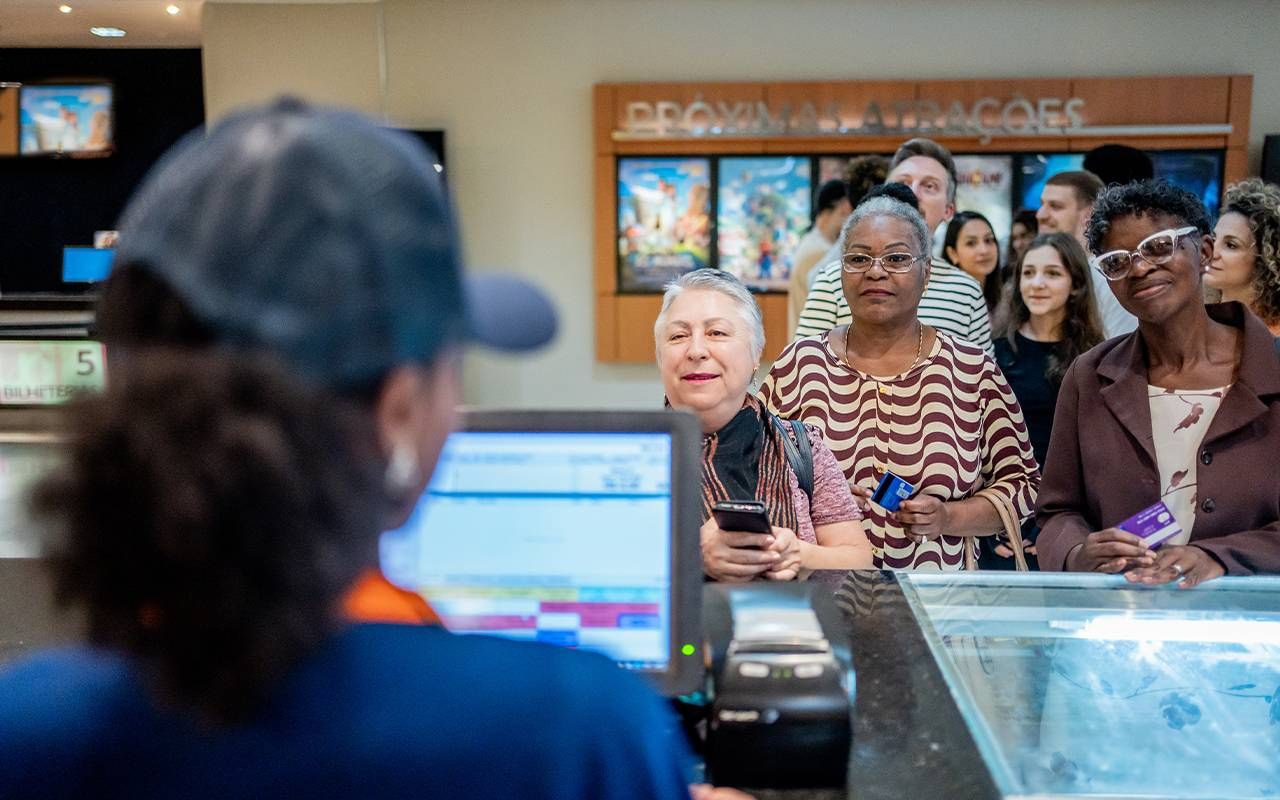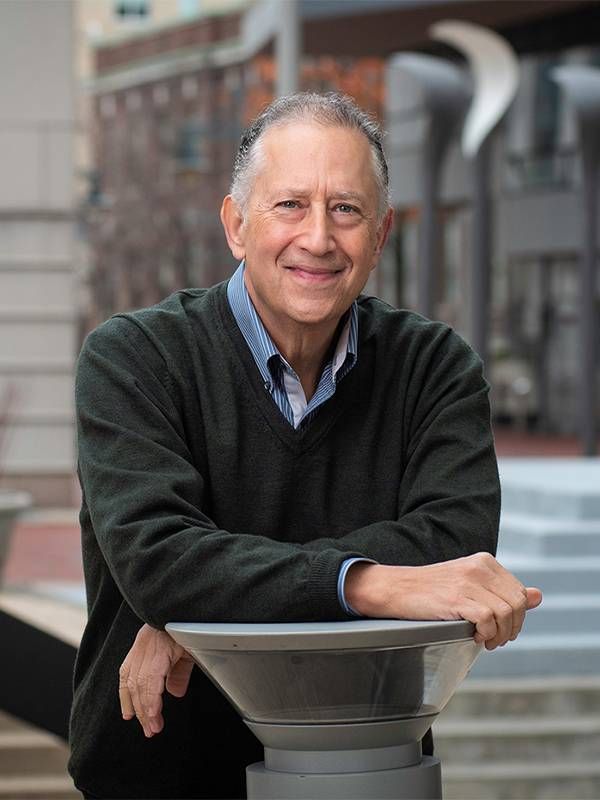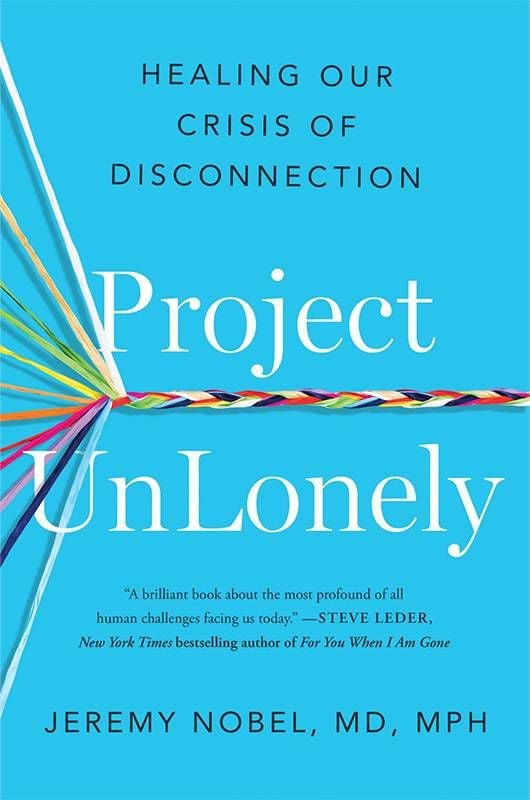We Don't Need to Cure Loneliness
Dr. Jeremy Nobel, author of a new book, says recognizing when and how to connect with others is key
Beginning with the dedication of his new book, "Project UnLonely: Healing Our Crisis of Disconnection," Dr. Jeremy Nobel is very clear about his intended audience: "Dedicated to all of us who blame ourselves for being lonely."
In other words, everyone.

He goes on to say: "that we may come to see loneliness as the most human of feelings and a call to creative self-expression and connection."
So rather than blame ourselves for being lonely — because there is no shame in those feelings, says Nobel — we should be confident in the knowledge that we all experience loneliness from time to time. Understanding that, and then finding ways to connect, can go a long way towards feeling better physically and emotionally.
"What happened in the pandemic is that it became normalized to be lonely."
Nobel, a 2020 Next Avenue Influencer in Aging, is a primary-care physician and public health practitioner with faculty appointments at the Harvard T.H. Chan School of Public Health and the Harvard Medical School. He is founder and president of the Foundation for Art & Healing; one of the core components of the organization's Project UnLonely initiative is the annual UnLonely Film Festival, which will celebrate its eighth season in June 2024.
In Nobel's book, he focuses on the three distinct categories of loneliness and describes them as follows: Psychological (a longing for another connection to another person), Societal (an overwhelming sense of not fitting in or belonging) and Existential (spiritual questions about the meaning and purpose within it). As Nobel explains, loneliness can be associated with five life territories: Trauma, Illness, Aging, Difference and Modernity.
Exploring creativity's role in helping us form connections with one another, and learning how to navigate those five territories in order to emerge with a better sense of all components of the human experience (perhaps especially as we age) are some key elements of Nobel's book.
An Admission of Loneliness
Chapter 3 of Nobel's book, titled "Our Loneliness Heritage," opens with a poignant story of what loneliness truly looks like. Nobel writes of an experience he had following a talk he delivered at a senior center in Manhattan in 2019:
"During the Q & A session that followed my talk, an older woman named Mary raised her hand. "You know," she said, "I come to these lecture events because people tell me it's a way to get out and meet people. But you just gave this whole talk about loneliness, and it did no good. I'm still lonely."
"You just gave this whole talk about loneliness, and it did no good. I'm still lonely."
"Mary choked up on the word lonely and then started crying. The people seated nearby rushed to comfort her. Some wrote out their phone numbers and asked her to call them. It was a touching moment that illustrates the power of vulnerability. Mary had divulged something personal and painful about herself, and the total strangers around her responded with empathy and concern. A simple, sincere statement of need, uncomfortable as it may have been for Mary, allowed her to "show up" more clearly for the others in the room, who immediately connected with her."
"My response to Mary that morning was to first acknowledge how rarely we even name the problem for what it is: loneliness; the absence of what we are thirsty for. It's as if in even speaking the word out loud, we confirm our own worst fears of our deep and shameful inadequacy. Instead, we sidle up to the topic, saying "I wish I had more friends," or even "It would be nice to go out more." When we do muster up the courage to mutter to others, "I'm lonely," in response we often hear very simplistic prescriptions for curing loneliness: get a pet, join a book club, volunteer at a senior center. These are all conceivably good things to do, but they don't necessarily address the underlying causes of chronic loneliness. The activities themselves are not an answer. How we engage in them makes all the difference."
In a recent conversation with Next Avenue, Nobel said that he was planning to write his book before the pandemic (based on his research, which included encountering stories of people like Mary), but the experience of the pandemic shone a brighter light on loneliness in a way Nobel believes is beneficial.
"What happened in the pandemic is that it became normalized to be lonely. It was clear that we were lonely because we were in a way serving a common goal, which was to be isolated to reduce the transmission of a lethal virus," he says. "We actually had a common connection in our loneliness. We still have that common connection, but in the pandemic, we didn't have to be ashamed of it."

Nobel believes the time is right to continue the conversation about loneliness in our society, calling it "a critical public health opportunity" to talk about loneliness as a human experience, understand its dynamic and learn how to recognize it in ourselves and in others.
Loneliness: A Common Human Experience
According to Nobel, so much of the language around loneliness can serve to make it even more daunting to discuss, as if loneliness is truly an illness and not a common human experience.
"I think one of the things that's overlooked is we over-pathologize loneliness as something that needs to be cured; we often say that loneliness can be as toxic as 15 cigarettes a day, for example," says Nobel, adding that for some people, loneliness can in fact become a very extreme state, where it can be considered chronic or toxic.
Instead, Nobel encourages us to reframe our occasional episodes of loneliness as signals that our minds and hearts need something more.
"Just like thirst is a signal that we need hydration, feeling lonely is a signal that we need human connection."
"Think of it as a signal. Just like thirst is a signal that we need hydration, feeling lonely is a signal that we need human connection," says Nobel.
Just how much connection we need is up to us, he adds, saying that can be different for everyone.
"Being on your own with your thoughts and feelings and investigating the world through your own lens of curiosity can be such an important mental state. We even have a high-class word for it; we call it solitude," he says with a laugh.
Even for those we prefer their own company to that of others, there are often times where that inner signal might be saying it's time to connect. Then what? How do we do that?
"Just very simple day-to-day connections, what we often call inconsequential connections," Nobel notes. "The conversation with the person in the checkout at the grocery store, your next-door neighbor over the fence."

However, Nobel, who is also an award-winning poet, encourages people to go one step further and tap into the potential of the arts (painting, making music, writing poems or stories) to reduce feelings of loneliness.
"We know that making art, or beholding art, reduces the release of the stress hormone called cortisol. That relaxes you, but also increases the levels of the so-called 'feel good' hormones of serotonin, dopamine, endorphins and oxytocin," he says. "So at the very least, engaging with the arts makes you more relaxed and in a better mood. That's a great place to start."
The Power of Social Media for Good
For those who believe our attachment to texting as the primary means of communication – instead of, for example, a conversation with eye contact – and our devotion to social media platforms (like Instagram, TikTok, Facebook) is damaging our ability to make real connections, Nobel says that rather than being a hindrance, social media can be a positive force.
"I'm very excited about positive potentials for social media and digital interaction, but it's how we use it. One of the ways it's not helpful for connection is when it's used to build a personal brand –sometimes it's like a highlight reel of what are viewed as social accomplishments. It's very performative and comparative," he explains. "But why overlook the positive benefits that social media could offer if we truly are willing to use it for authentic connection. Many people are already doing it that way, particularly many older adults — I think they have a kind of courageous use of social media to express their joy and delight around truly authentic things."
A Prescription from the Doctor
Having been immersed in this work around the public health impact of loneliness on society for a good portion of his career, Nobel is eager to advance the conversation with his book. (An aside from the Next Avenue managing editor – if your book club is looking for a thought-provoking read, consider "Project UnLonely.")
"If you're feeling lonely, get curious about those feelings. Make connections, talk to others, develop new habits," he says. "That's a prescription that has no copay, it's accessible to everyone and it can be filled anywhere."
Editor’s note: Section of "Our Loneliness Heritage" is excerpted from Project UnLonely: Healing Our Crisis of Disconnection by Jeremy Nobel, MD, MPH with permission of Avery, an imprint of Penguin Publishing Group, a division of Penguin Random House LLC. Copyright © Jeremy Nobel, MD, MPH, 2023.


